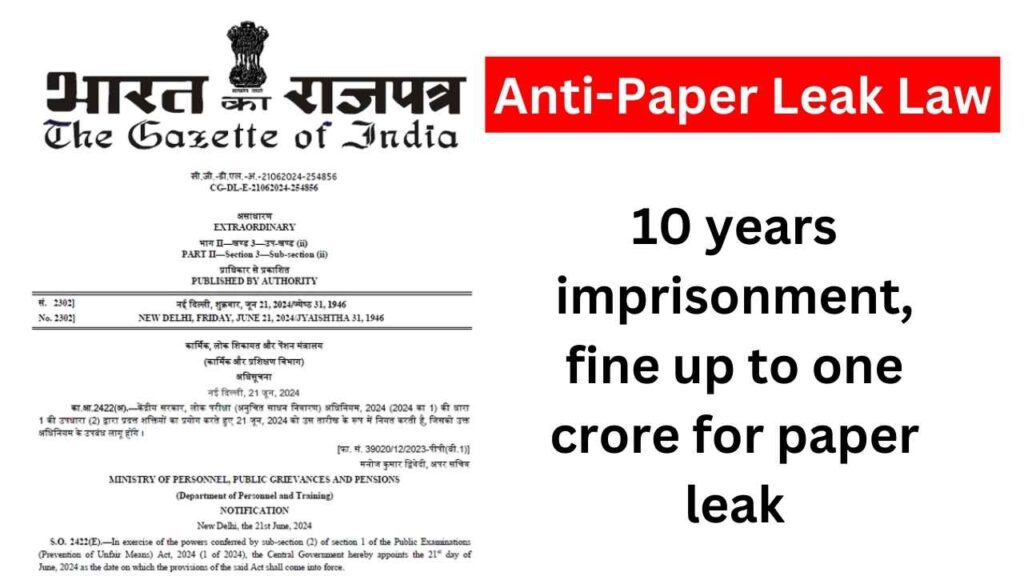Anti-Paper Leak Law: Offences falling under the Public Examination (Prevention of Unfair Means) Act, 2024 are non-bailable.
An officer of DSP (Deputy Superintendent of Police) or ACP (Assistant Commissioner of Police) rank can investigate any crime under the Act. Additionally, the central government has the power to hand over any investigation to the central agency.
The central government has taken a big step to prevent incidents of paper leak in future amid the controversy over alleged irregularities in NEET and UGC-NET examinations.
The government on Friday notified the Public Examination (Prevention of Unfair Means) Act, 2024, which aims to prevent fraud in competitive and general entrance examinations held across the country.
This law was passed by Parliament in February this year, which has come into effect from June 21, 2024. Under this law, a minimum sentence of 3 to 5 years of imprisonment is proposed to curb cheating in public examinations and there is a provision of 5 to 10 years imprisonment and a minimum fine of Rs 1 crore for those involved in the paper leak gang.
If a person or a group of persons commits any organized crime, which includes the institution conducting the examination, service provider, or any other institution, then they will be punished with a minimum of 5 years imprisonment, which can be extended to 10 years.
The law states that the fine will not be less than Rs 1 crore. There is also a provision in the law to confiscate and seize the property of any institution found involved in organized paper leak crime and the cost of the examination will also be recovered from that institution. However, this law protects the candidates appearing in the examination from punitive provisions. If a candidate is caught using unfair means during the examination, action will be taken against him as per the provisions of the institution conducting the examination.
The law defines ‘unfair means’ as leaking of paper or answer key, assisting candidates during the examination through unauthorized communication, tampering with computer networks or other equipment, sitting proxy candidates (making a solver sit in the exam in place of a candidate), conducting fake examinations, issuing fake documents regarding the examination list or rank, and tampering with eligibility documents.
All these examinations will come under this law
The offences falling under the Public Examinations (Prevention of Unfair Means) Act, 2024 are non-bailable. An officer of the rank of DSP (Deputy Superintendent of Police) or ACP (Assistant Commissioner of Police) can investigate any offence under the Act. Additionally, the central government has the power to hand over any investigation to a central agency. All computer-based examinations conducted by the Union Public Service Commission (UPSC), Staff Selection Commission (SSC), Railways, banking recruitment examinations and the National Testing Agency (NTA) come under this Act.


